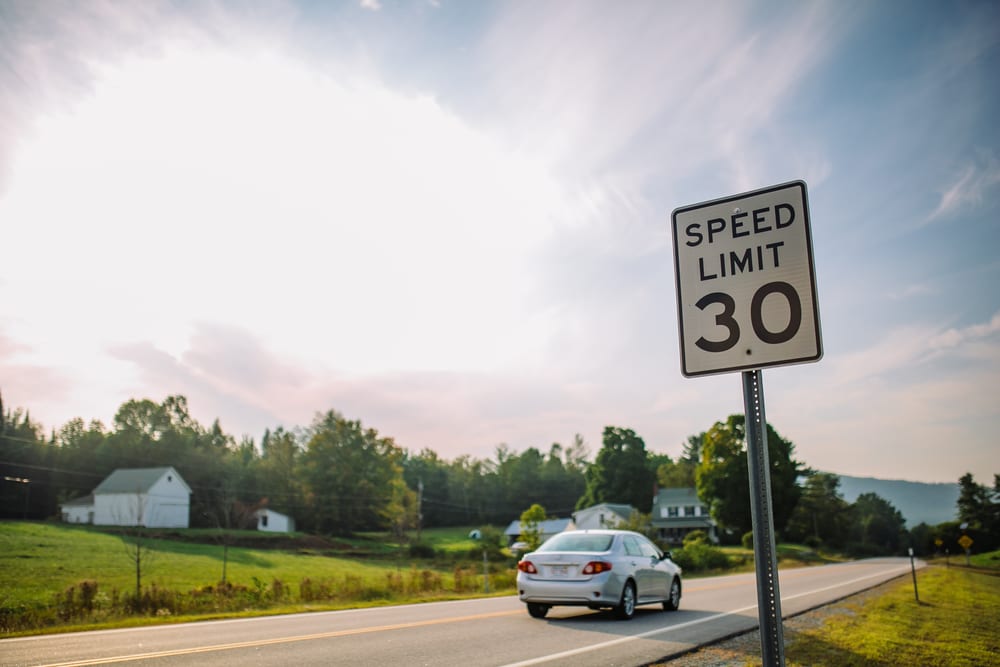

Following is an overview of the laws, limits, and fines as they relate to speeding traffic violations in the state of Vermont.
Speed limits in Vermont
65 mph: rural interstates
55 mph: urban interstates and freeways, and rural two-lane limited access roads
50 mph: other limited access roads and highways
25-50 mph: residential areas
15-25 mph: school zones, as posted
Vermont code on reasonable and prudent speed
Maximum speed law:
According to section 1081(a) of VT vehicle code, “No person shall drive a vehicle at a speed greater than is reasonable and prudent under the conditions, having regard for the actual and potential hazards then existing.”
Minimum speed law:
There is no statutory minimum speed in Vermont, however there is a statute requiring anyone who is impeding traffic to "pull off the highway at the first opportunity to allow the traffic to pass before proceeding,” according to section 1082.
Also according to section 1082, “A person driving at less than the normal speed of traffic shall drive in the right-hand lane then available for traffic or as close as practicable to the right-hand curb or edge of the highway.”
Signs may be posted for the purpose of directing slower-moving vehicles to specific lanes.
Due to variations in speedometer calibration, tire size, and margins of error in speed-detecting technology, it’s uncommon for an officer to pull a driver over for going less than five miles above the speed limit. However, technically any amount over can be considered a speed violation so best practices are to stay within the limit.
Vermont has an absolute speed limit law. This means that a driver cannot argue a speeding ticket on the basis that they were traveling safely despite exceeding the speed limit. A driver may, however, choose to go to court and claim their innocence based upon one of the following:
The driver may oppose the determination of speed. In order to claim this defense a driver must know how his or her speed was determined and then learn how to disprove its accuracy.
A driver may claim that an emergency situation caused the driver to break the speed limit in order to prevent injury or damage to themselves or others.
The driver may claim a case of mistaken identity. If a police officer clocks a driver speeding and subsequently has to find them again in traffic, it’s possible that they could have made a mistake and pulled the wrong car over.
Penalty for exceeding the speed limit in Vermont
First-time violators may:
Be fined $47 or more
Have their license suspended (based upon a point system)
Penalty for reckless driving in Vermont
Exceeding the speed limit by 30 mph is automatically considered reckless driving (technically referred to as negligent operation) in this state.
First-time violators may:
Be fined $47 or more
Be sentenced to up to one year of jail time
Have their license suspended for up to 30 days
Violators may be required to take a driver retraining course.



